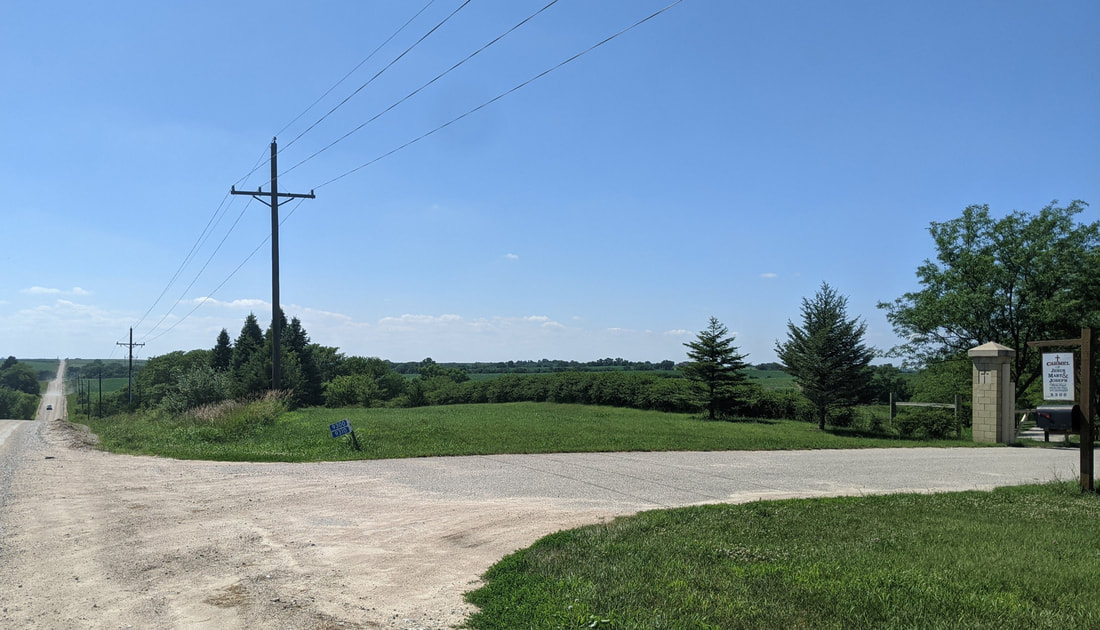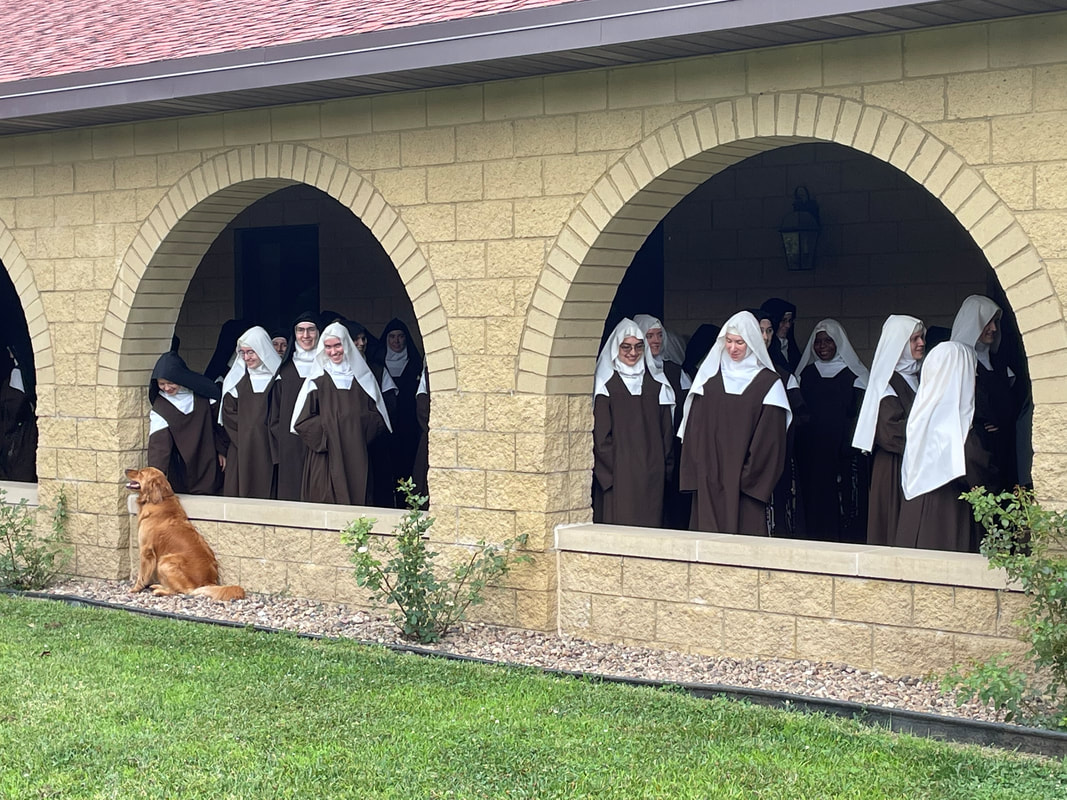
Last Monday Holy Mother Church remembered St. Joseph of Cupertino, the “flying saint.” It was a third-class feast—nothing special—and the nuns would normally not chant the Mass. But as I waited inside the darkened sacristy for the monastery clock to reach 7am, their 29 voices were still singing the last verses of lauds, in exquisite counterpoint to the tower bells, which ring continuously until Mass begins. The sisters concluded their morning song as the great bell faded. Silence descended, punctuated only by the faint sound of crickets outside, still awake as dawn spread her soft light over the fields. The server’s hand reached out tentatively for the sacristy bell, then grasped it for a firm shake (good servers know that it’s all in the wrist). Vested in magnificent vestments, we moved from the darkened sacristy into the blazing light of the sanctuary, and the sisters surprised us with a sung introit.
Every Holy Mass with contemplative sisters, and every day in the monastery, is filled with wonder. In most of Europe’s history, the powerful knew where their bread was buttered. They dedicated part of their wealth to contemplative communities, who usually built their monasteries on high places just outside city walls, where the bells would ring out over village and city alike.
The world still needs monasteries. Our imaginations, our hearts, and our endeavors wither to mere existence without the divine mysteries, delivered most wonderfully by monastic communities. In this Carmelite monastery just outside of Lincoln, Nebraska, one cannot see the nuns, as they are behind an enclosure. But one can hear them, and one can hear the bells ringing out over the cornfields. I’m back in San Francisco now, but I know that adoration of God and contemplation of the mysteries continue unceasingly in a monastery on 20 acres of farmland in Nebraska. And for that matter, in several monasteries here in the City. Unnoticed but always flowing, like our bodies’ own circulatory systems, the monastic communities are the lifeblood of Church and City alike.



 RSS Feed
RSS Feed